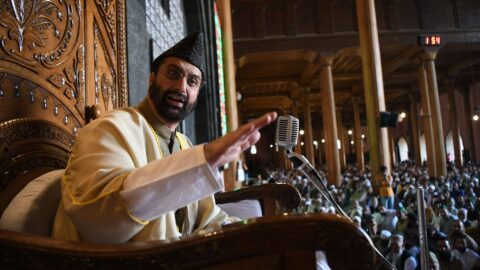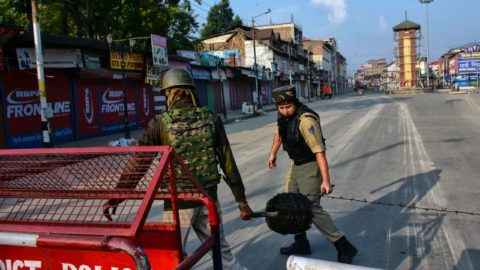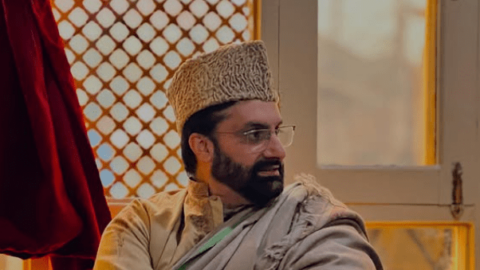On December 27th, Mirwaiz Muhammad Umar Farooq, was barred from leaving his house to lead…
Removal of Sheikh Nooruddin Wali Chapter from Textbooks Sparks Outrage in Kashmir
On December 18th, the removal of a chapter on Sheikh Nooruddin Wali by the Indian educational authorities, one of Kashmir’s most revered Sufi Muslim saints, from the Class IX English textbook in Jammu and Kashmir triggered widespread outrage.
The decision was implemented under the administration of Hindu nationalist Lieutenant Governor Manoj Sinha, who oversaw the erasure of this Kashmiri Muslim cultural heritage.
Sheikh Nooruddin Wali, known as Sheikh-ul-Alam, is a deeply respected figure among both Muslims. His teachings of peace, unity, and spiritual wisdom are considered integral to Kashmir’s Muslim culture. His shrine at Charar-e-Sharief, which was destroyed in a devastating Indian military operation in 1995, remains a vital cultural and spiritual landmark.
The removal of his chapter is a deliberate attempt to erase Kashmir’s Muslim identity and spiritual heritage. “This isn’t just about a textbook chapter; it’s part of a larger agenda to disconnect Kashmir’s youth from their history and cultural roots,” said a Srinagar-based educator to us.
Such decisions are emblematic of the broader Indian attempts to homogenize education and impose narratives that marginalize Kashmir’s Muslim identity. By targeting figures like Sheikh Nooruddin Wali, whose legacy represents unity and resilience, the administration is accused of deepening cultural alienation among Kashmiris.





